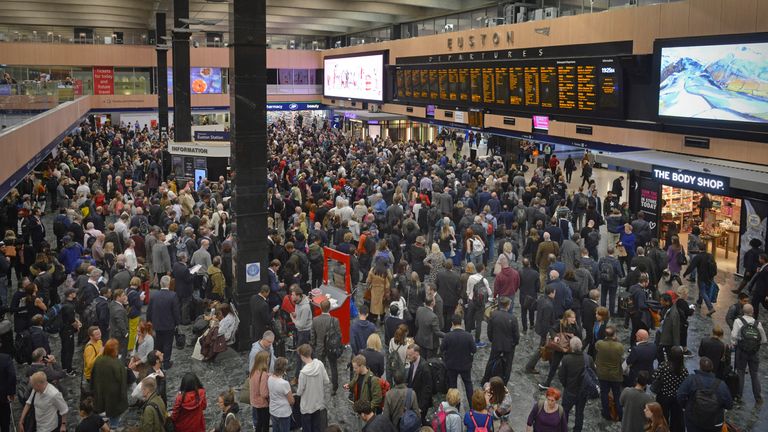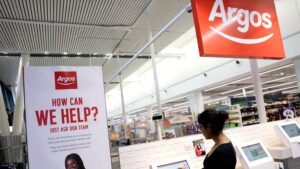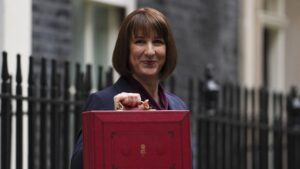What is Labour’s rail nationalisation plan and will it make train tickets cheaper?
The UK currently has some of the highest rail ticket prices in Europe – something critics have blamed on privatisation. But it isn’t clear if potential savings made from nationalisation will be used to subsidise ticket fares.

In 1993, then Conservative Prime Minister John Major did something even his predecessor Margaret Thatcher considered a step too far – privatised the railways.
Some 30 years later, the decision is regarded by unions as the root cause of problems facing commuters: Rising costs, frequent delays, cuts to services and timetable chaos.
The new Labour government has vowed to return rail journeys to public ownership within five years – naming the first three companies to be nationalised.
But what does that mean for passengers – and crucially – will it reduce fares?
What has Labour promised?
Labour’s manifesto promised to put commuters “at the heart of the service by reforming the railways and bringing them into public ownership”.
It says it will do this as contracts with existing operators expire or are broken through a failure to deliver, “without costing taxpayers a penny in compensation”.
It will also establish Great British Railways (GBR) to run both the network tracks and trains.
What savings will nationalisation make?
The RMT union estimate that since privatisation, some £31bn has leaked out of the system, mostly into shareholders pockets, while passengers are paying 8% more in real terms “to travel on a deteriorating system”.
It argues that if the flow of funds into the private sector is cut off, the money saved – around £1.5bn a year – could fund an 18% cut in the price of fares.
The £1.5bn figure is from a review carried out by the Tories when they were in government. Labour says it has identified further areas of waste, and that its plan could save the taxpayer £2.2bn a year.
That is relatively small compared to the total public spending on the railway in the UK in 2023-24, which was £26.8bn, according to Treasury statistics.
And the government has not explicitly promised that the savings made from nationalisation will be used to subsidise fares.

Will nationalisation reduce ticket prices?
The new Transport Secretary Heidi Alexander told BBC Breakfast that the primary aim of the plan, rather than reducing ticket costs, is to “improve reliability and clamp down on the delays”.
She said the commercial realities of the railways “are very challenging” and even under public ownership, “we’ve got to make sure that we’ve got enough money to provide the services that people want”.
William Barter, an independent rail consultant, told Sky News that “there is no logical reason why nationalisation will reduce fares”.
He said the government already regulates rail fares, so could hold them down regardless of whether the journeys are publicly or privately operated.
“It’s a political decision as to how much you subsidise the railways in exchange for socio and economic benefits,” he said.
“If you subsidise rail more, you need more capacity [for increased journeys], but in terms of capacity the system is creaking at the seams.”
Read More:
Train companies to face review over how they prosecute rail fare evasion
Passengers ‘punished’ as rail fares hiked by nearly 5%
So does this mean rail fares could actually go up?
Rail fares tend to go up each year and 2025 will be no different.
This time the cap on the increase has been set at 4.6% – while the cost of most railcards will rise by £5, or almost 17%, from March.
The measure was quietly disclosed in Chancellor Rachel Reeves’ budget document with the government calling the rise “the lowest absolute increase in three years”.
It comes as a further blow to commuters, given the UK already has the most expensive train tickets in Europe, a Sky News analysis previously revealed.
There are various reasons behind this – and various solutions, according to experts.
‘Fare reform needed’
Mick Lynch, the general secretary of the RMT, told Sky News at the Labour Party Conference in September that the government’s ambition for a “best price guarantee”, should end passengers being “ripped off”.
There are currently around 55 million different fares in the system, but the guarantee would mean passengers always paying the lowest available fare for their journey, he said.
It’s not clear when this could be implemented.
Bruce Williamson, of the Rail Future organisation, said ministers should freeze fares as it has done with fuel duty for drivers – saying people are currently being “priced off the railway”.
Nationalisation ‘needs to go further’
For Labour peer Prem Sikka, the government must go further and nationalise freight services and rolling stock.
Since privatisation, rolling stock companies (ROSCOs) have been buying parts like engines and carriages then leasing them out to train operating companies.
While rolling stock typically has an economic life of 25-30 years, train companies operate on a horizon of 5-10 years, Lord Sikka told Sky News, so it is a “lucrative industry” – as the parts are essentially paid for over and over again.
He added that ROSCOs make around £2bn in profit a year, but most of them are registered in Luxembourg – so they don’t pay UK tax on their dividends.
Renegotiating contracts or buying direct from manufacturers “will save a big amount of money” he said, calling Labour’s plan a “moth-eaten rent-a-carriage” model rather than true public ownership.
He added that if freight services were nationalised that could also create savings to subside passenger journeys.
Meanwhile, Rail Partners, an industry group of passenger train and freight firms, said “simply changing who runs the trains won’t deliver more reliable and affordable services for passengers” – and the key to this is restoring the financial sustainability of the railways by attracting more passengers – including measures like fare reforms.
What are the proposed benefits of nationalisation?
In the words of Mr Barter: “The possible plus of nationalisation is it’s now [Labour’s] baby and they have to make it work instead of shouting at the private operators.”
Transport Secretary Ms Alexander told Sky News there’s been “huge fragmentation” under privatisation, with a “dizzying array” of stakeholders meaning “financial incentives are misaligned and there’s no overarching direction”.
“No one’s in control. That’s what we’re going to be changing,” she said.
She says there’s already signs the public ownership model will be a success – with punctuality and cancellation rates improving for LNER and Southeastern since the Department for Transport (DfT) took over running them due to poor management.
Northern Trains and TransPennine Express are also already under state control because of poor services, while next year South Western Railway, c2c and Greater Anglia will follow suit when their contracts expire.
Seven more companies – including Avanti West Coast – will transfer over when their franchises end.


